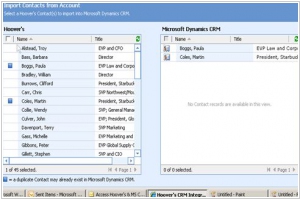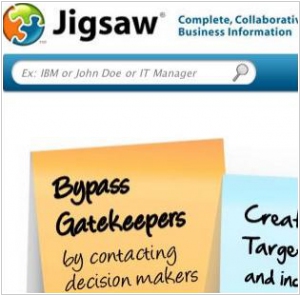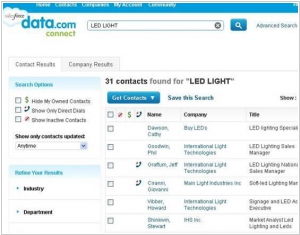Data.com vs Hoovers
May 24, 2023
13

Reach decision makers in your target markets. Research more than 100 million business people for information including titles, job functions, biographies, job histories, and more. Get access to more than 16 million contacts with e-mail addresses and direct-dial phone numbers. With Hoover’s, you can uncover opportunities, tap new markets, and streamline prospecting.
Data.com and Hoovers are both providers of business and company data, but they have some notable differences in their offerings and focus. Data.com, owned by Salesforce, is a platform that focuses on providing contact data within the Salesforce ecosystem. It offers a combination of data cleansing, enrichment, and access to a database of business contacts. Data.com is particularly beneficial for Salesforce users who need accurate and up-to-date contact information integrated directly into their CRM.
On the other hand, Hoovers, owned by Dun & Bradstreet, specializes in delivering comprehensive business intelligence. It provides in-depth company profiles, financial data, industry analysis, and competitor information. Hoovers has a strong focus on offering robust coverage of public and private companies, making it valuable for market research, due diligence, and competitive analysis.
On the other hand, Hoovers, owned by Dun & Bradstreet, specializes in delivering comprehensive business intelligence. It provides in-depth company profiles, financial data, industry analysis, and competitor information. Hoovers has a strong focus on offering robust coverage of public and private companies, making it valuable for market research, due diligence, and competitive analysis.
Data.com vs Hoovers in our news:
2010. Salesforce goes into amoral crowdsourcing

Nowadays the confidentiality of personal information is not so important. Especially for sales guys, like Salesforce's management. Today, Salesforce has acquired Jigsaw, which TechCrunch's Mike Arrington at first called evil and then simply amoral. Jigsaw - is a huge (21 million) online database of contacts and companies, filled by crowdsourcing: users add contact information of other people (without their knowledge) usually from business cards. When the service appeared in 2006, it paid people $1 for each added contact. Then Jigsaw sell the access to contacts database to companies using cold calling (or spammers). And there was no way to remove your contacts from the service. ***


